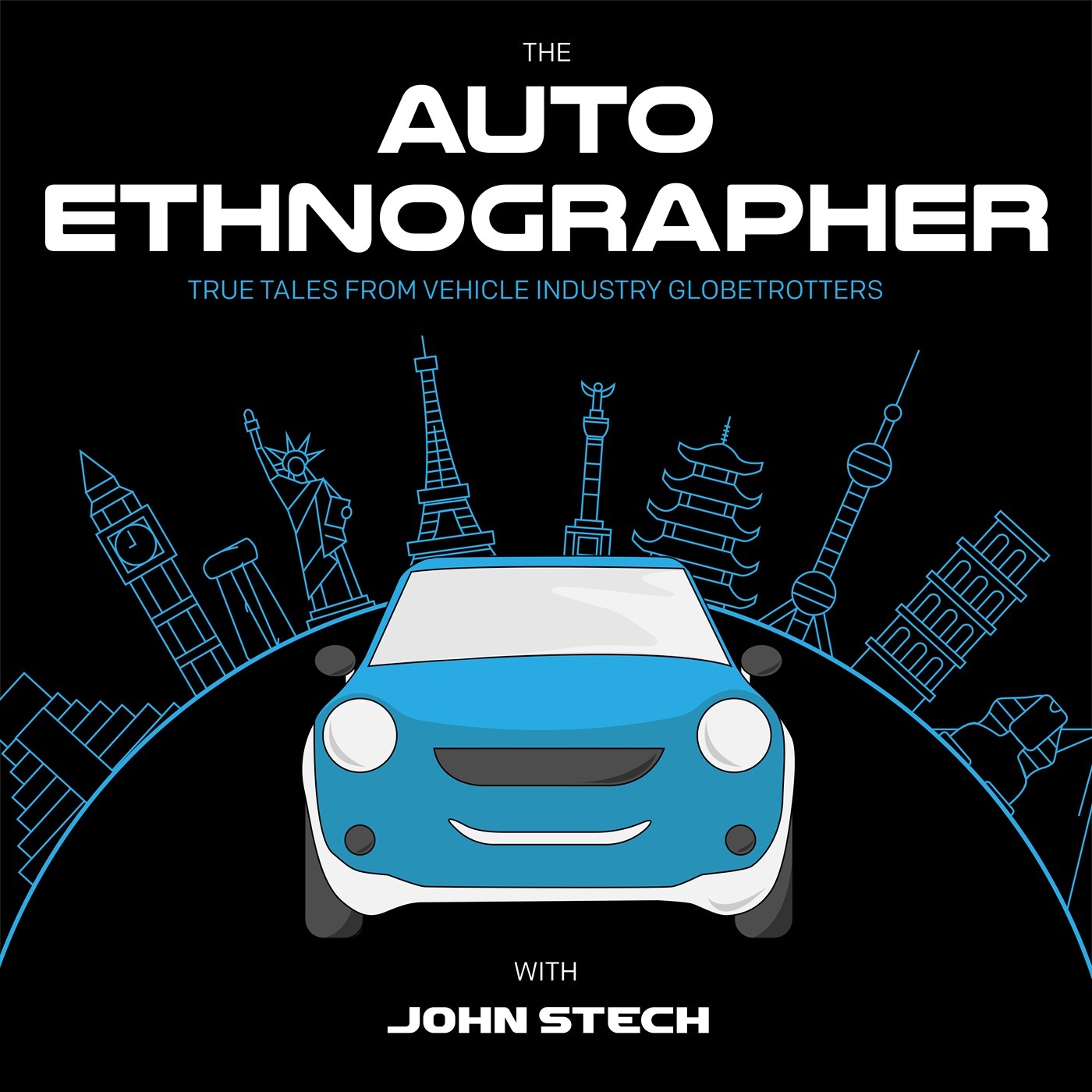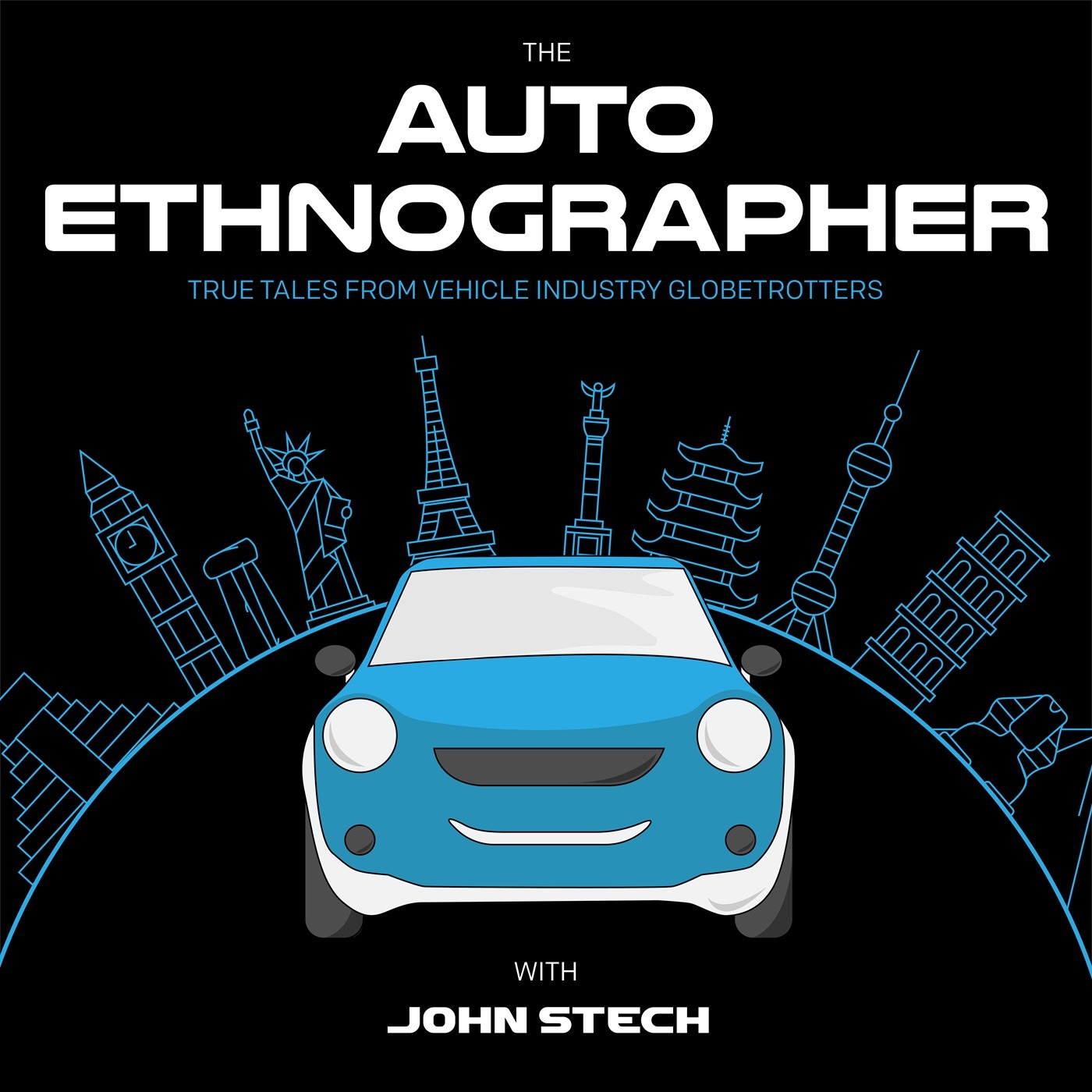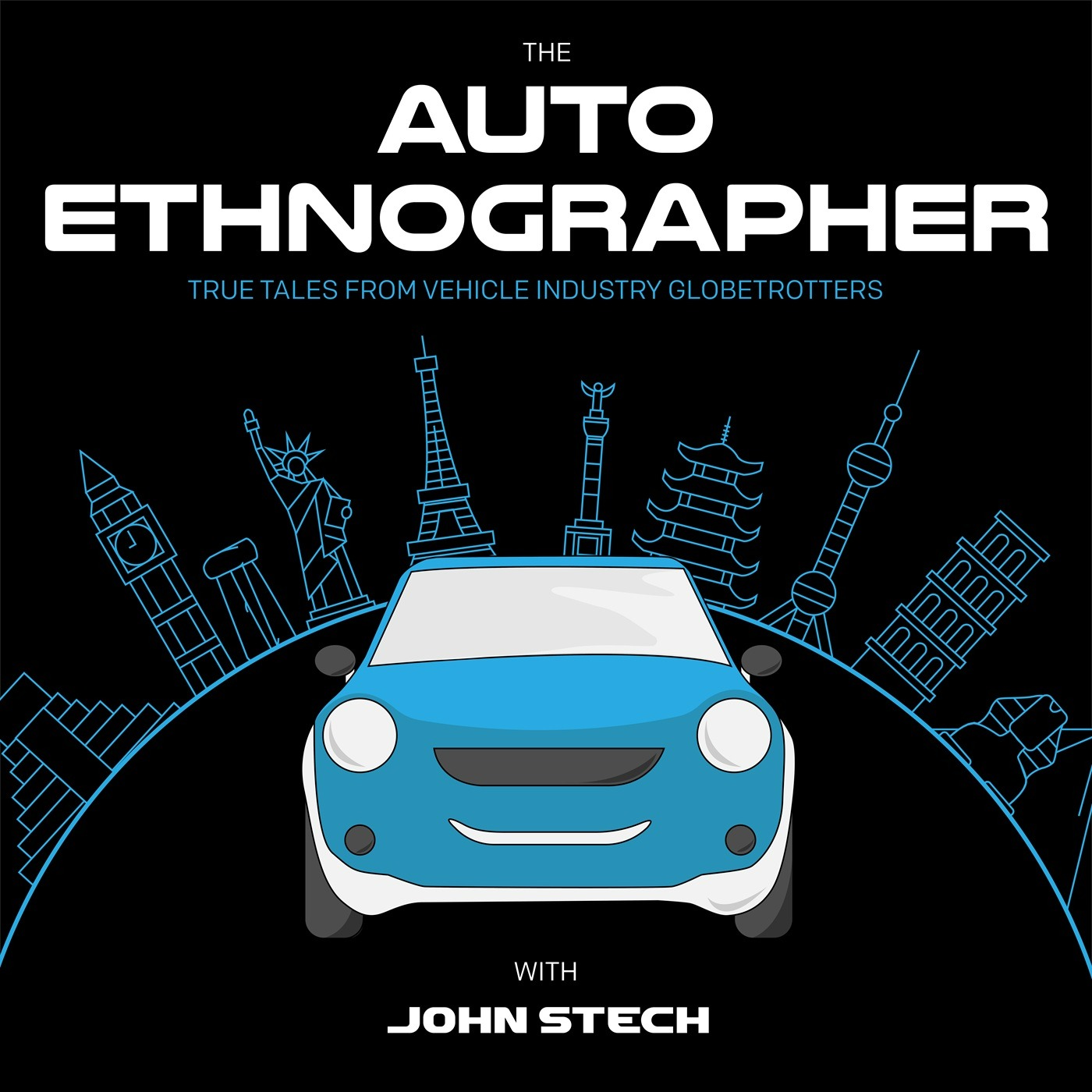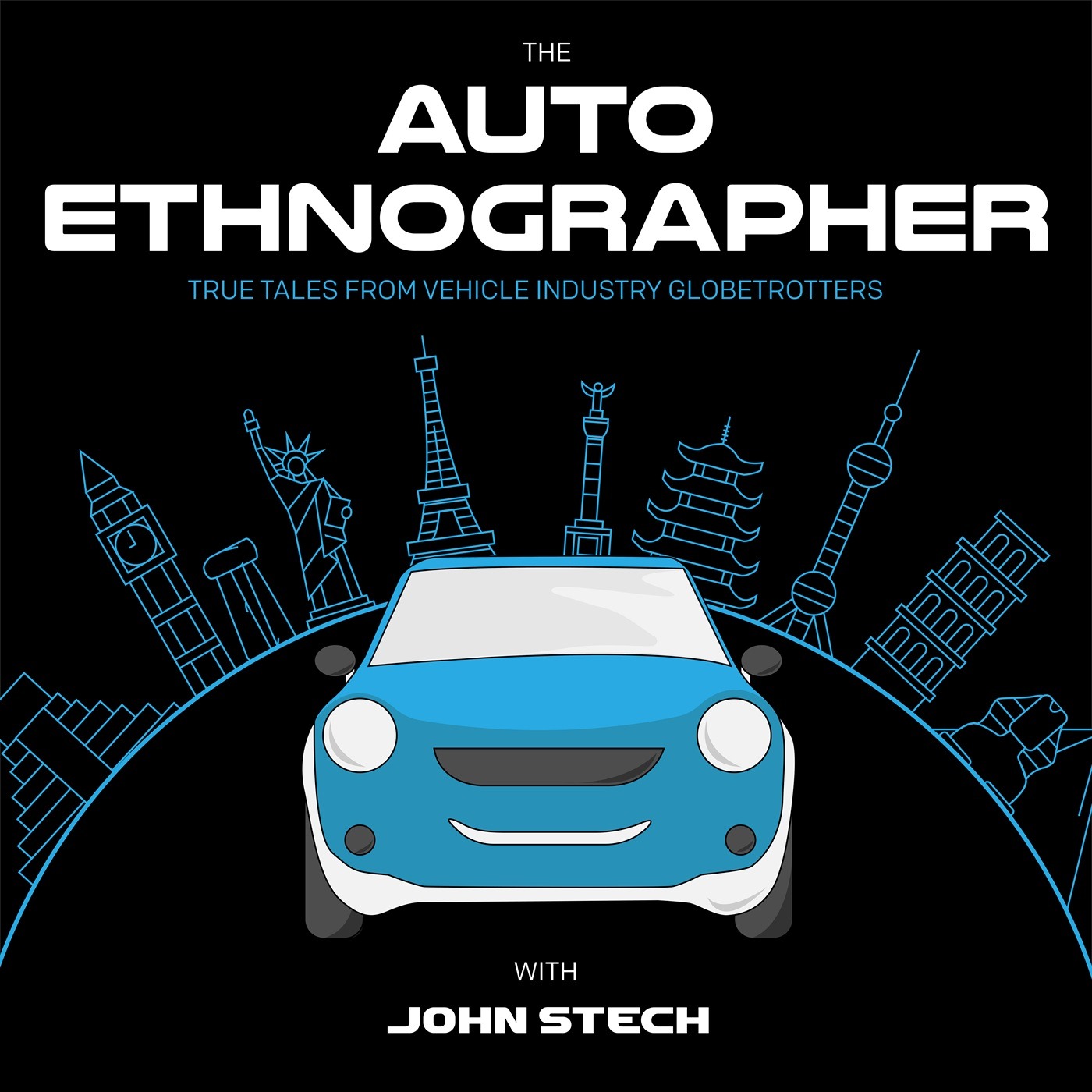
The Auto Ethnographer with John Stech
Author: John Stech
Subscribed: 3Played: 29Description
John Stech, The Auto Ethnographer, draws on his thirty years in the global automotive industry to bring the world to your doorstep in both an informative and entertaining way using a style rooted in autoethnography.
What is "autoethnography"? Derived from Tony E. Adams’ definition, "autoethnography" is a research method leaning on the experiences of individuals to analyze assumptions, culture, communication, local norms, traditions, emotional impact, and how they mesh with greater culture and society where they operate. Normally, "auto" relates to the self – as in "autobiography". But we put wheels on it, separated the words, and focus on vehicles and the cultural experiences related to the auto industry.
The Auto Ethnographer and his guests tell the human stories behind the famous automotive and vehicle brands, spanning continents, countries, and cultures across the globe. Together, they unlock the mysteries of local culture, values, and approaches to success in the vehicle industry. Of course, every cultural interaction faces the risk of faux pas, and those will surely be covered as well.
The Auto Ethnographer's guests made the vehicle industry happen in their country markets. Now they tell their stories. Each guest will relay their experiences while addressing cultural challenges they faced. Guests range from current and past industry leaders to newcomers and rising talents. They are either expats in a foreign land or local employees working with a foreign brand in their home country.
The target audience are Individuals fascinated by the auto industry and how to navigate cultures for successful outcomes. The audience are either seasoned professionals or newcomers seeking to learn how to build their careers with global insights. But don't think this is limited to the auto industry. These international business principles are valid across industries.
John Stech engaged in his 30-year career with Mercedes-Benz, Chrysler Corp (now part of Stellantis), Volvo Car Group, and VinFast Automotive of Vietnam. He has lived and worked on five continents, interacting with thousands of people from dozens of different cultures. Now he brings that experience to you.








